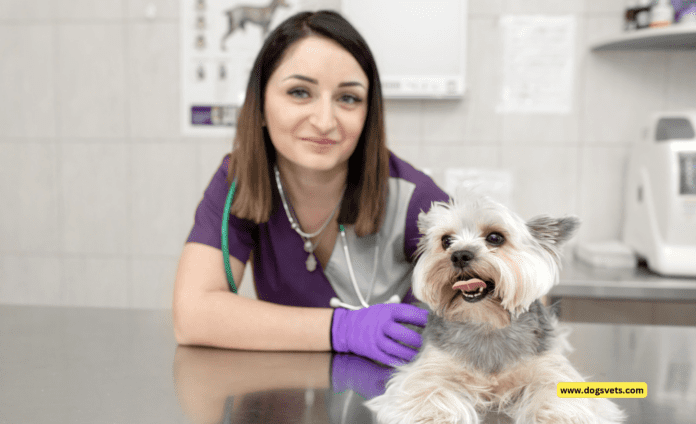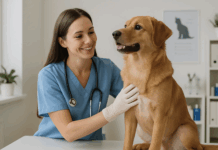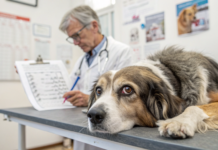Last Updated on November 6, 2023 by Dogs Vets
Tips for Safeguarding Your Dog’s Health and Your Finances
As a pet owner, a top priority is the health and well-being of your dog. Ensuring your dog stays healthy comes at a cost.
Whether it is routine pet visits or unexpected emergencies, veterinary bills add up. It is important to take preventative measures to safeguard your wallet and your dog’s health.
Here are some tips on how to keep finances in check and keep your dog in optimum health. They discuss:
- Benefits of a balanced diet and exercise
- Significance of preventative medication and vaccinations
- Benefits of pet insurance
- Financial protection when unexpected medical expenses occur
The tips ensure your dog stays healthy and happy without breaking the bank.
Tips for Keeping Your Dog Healthy and Happy
Like humans, dogs experience mental health-related issues. Some dogs suffer from separation anxiety if left alone for long periods or have a history of neglect. Acting out or abnormal behavior are signs of mental issues to watch for.
Maintaining a healthy weight is a concern for dog owners. Being underweight or overweight is sometimes a sign that something serious is the matter. Talk to your veterinarian about your dog’s ideal weight. Ensure the pet’s weight stays near the recommendation. Feeding a dog home-cooked, high-quality meals is one way to maintain a healthy diet.
Dog ownership is expensive, and vet visits impact your bank account. However, worming vaccinations, tick treatments, and regular check-ups are crucial to the health of your dog.
Daily exercise is essential to keep a dog happy and healthy. Breeds differ in the amount of activity required, but without regular exercise, dogs are susceptible to mental and physical health issues.
Why Pet Insurance Is Important to Consider Purchasing
Pet insurance helps cover medical care costs for your dog. You receive reimbursement for expenses, such as surgery, prescription medications, emergency care, and cancer treatment. Pet insurance saves the lives of some dogs if an owner is otherwise unable to pay for treatment.
There is no way to predict how or when a pet gets sick or the cost of the treatment. Per insurance protects against veterinary bills that occur unexpectedly. Most people struggle to afford a bill from the vet for $1500. The right pet insurance is a lifesaver.
No matter how responsible or careful you are, dogs sometimes eat things that are not good for them or sustain an injury. Pet insurance enables you to care for your pet without financial burden.
The Average Cost of Vet Care Without Pet Insurance vs. with Pet Insurance
A Forbes Advisor analyzed the cost of vet visits and found them to be about $61. That figure is for a basic vet exam. Vaccinations and other health-related treatments cost more.
If your dog has an injury or illness, expect medication, treatments, and diagnostic tests. Here is a list of average costs for primary care.
- Dental, $361
- Neuter, depending on the size of the dog, $486 to $556
- Bortella vaccination, $31
- Rabies vaccination, $31
- Euthanasia, $131
Unexpected treatment costs include:
- Arthritis, $700
- Bladder infection, $400
- Broken bone, $2700
- Cancer, $4100
- Dental disease, $600
- Ingested foreign object, $3500
Pet insurance covers veterinary expenses for accidents and illnesses. There are three standard plan options.
- Accident and illness plans
- Accident-only plans
- Wellness and routine care plans
When buying pet insurance, you typically choose an annual maximum limit, deductible, and reimbursement level. The annual maximum coverage ranges from $5000 to an unlimited amount. Typical deductibles are $250 and $500. The reimbursement percentage is typically between 70 to 90 percent.
Conclusion
Taking care of your dog is essential for both its well-being and your finances. Preventative measures ensure your dog is healthy and avoid costly vet bills.
Unexpected illness or injury sometimes occurs. In those situations, pet insurance covers a range of veterinary expenses and alleviates some of the financial burden. Costs vary depending on the type of plan.
Fact Check
We strive to provide the latest valuable information for pet lovers with accuracy and fairness. If you would like to add to this post or advertise with us, don’t hesitate reach us. If you see something that doesn’t look right, contact us!























